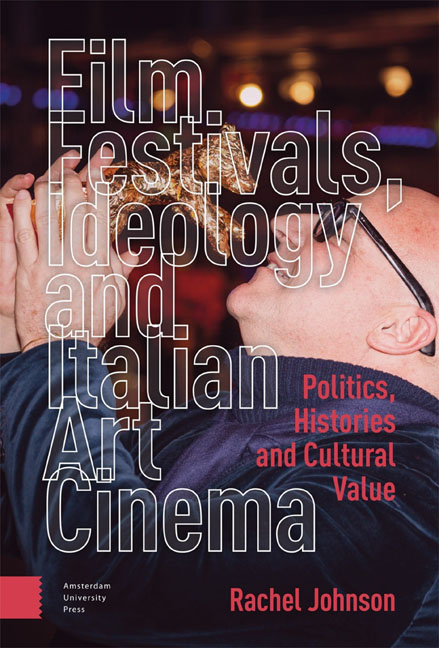6 - Capitalism and Orientalism: Gomorrah at Cannes
Published online by Cambridge University Press: 13 April 2024
Summary
Abstract: Through the case study of Gomorrah's (Matteo Garrone, 2008) presentation at Cannes, this chapter re-assesses film festivals’ claims to both artistic and political universality through the lenses of capitalism and Orientalism. I argue that European A festivals disavow their reproduction of oppressive power structures by displacing the excesses of global capitalism onto a fantasmatic, orientalised South. I investigate the dynamics of transnationalism and “uneven development” in competitive film festivals’ programming of films produced and/or set “outside” the North Atlantic. I show that, while Cannes’ presentation of Gomorrah effectively localises its critique to Southern Italy, the film itself makes manifest the imbrication of the Global North—and even European film festivals—in the ecological and commercial corruption it depicts.
Keywords: globalisation, Eurocentrism, film festivals, Italian cinema, Matteo Garrone, eco-cinema
Power, money and blood: these are the “values” that the residents of the Province of Naples and Caserta, have to face every day. They hardly ever have a choice, and are almost always forced to obey the rules of the “system”, the Camorra. Only a lucky few can even think of leading a “normal” life.
Five stories are woven together in this violent scenario, set in a cruel and apparently imaginary world, but one which is deeply rooted in reality.
‒ Synopsis of Gomorrah in the Cannes 2008 print and online programmeIntroduction
In this book I have analysed the ideological effects of European A festivals’ position within, dependence upon, and reproduction of, global capitalism. I have considered how the figure of the auteur, as a sinthome of “universal” cinematic art, both conceals and reveals the contradictions of art cinema as a commodity and European A festivals as commercially constrained institutions. Building on this, I have analysed the gendered dimension of this figure to show that the festivals’ ideological dependence on the auteur entails the reproduction of masculine dominance or patriarchy. I have also considered how European A festivals’ claim to represent the other functions to differentiate them and the films they award from their constitutive outside, Hollywood, while nonetheless reproducing coordinates that make the totality of representation that festivals claim structurally impossible.
- Type
- Chapter
- Information
- Film Festivals, Ideology and Italian Art CinemaPolitics, Histories and Cultural Value, pp. 215 - 254Publisher: Amsterdam University PressPrint publication year: 2023

